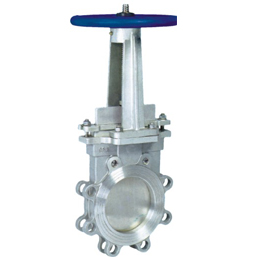Top Steel Flange Producers for Your Industrial Needs and Applications
The Importance of Steel Flange Manufacturers in Modern Industry
In today's industrial landscape, the significance of high-quality components cannot be overstated. Among these essential components, steel flanges play a pivotal role in ensuring the seamless operation of various systems. Steel flange manufacturers are critical to meeting the demand for these durable and reliable fittings, which are widely used in piping, construction, and machinery applications.
What are Steel Flanges?
Steel flanges are flat pieces of steel with holes around the edges, designed to connect pipes and equipment together. They serve as a strong and durable coupling mechanism, allowing for the easy assembly and disassembly of piping systems. The versatility and strength of steel make flanges an ideal solution for industries that require reliable performance under pressure, such as oil and gas, chemical processing, water treatment, and power generation.
Types of Steel Flanges
Steel flanges come in various types, each suited for specific applications. The most common types include
1. Weld Neck Flanges - These flanges are designed for high-pressure applications and are welded to the pipe, ensuring a strong and leak-proof connection. 2. Slip-On Flanges - Slip-on flanges are easy to install and align with the pipe before welding. They are often used in low-pressure applications.
3. Blind Flanges - Used to seal off the end of a piping system, blind flanges are crucial for maintenance and inspection purposes.
4. Threaded Flanges - With internal threads, these flanges screw onto the pipe and are commonly used in applications where welding is not feasible.
steel flange manufacturer

Each type has unique characteristics that make it suitable for different environments and pressures, reinforcing the importance of selecting the right flange for a specific application.
The Role of Steel Flange Manufacturers
Steel flange manufacturers are integral to ensuring that these vital components meet the stringent demands of today's industries. They are responsible for the design, production, and quality assurance of flanges, ensuring they adhere to international standards such as ANSI, ASME, and API. Quality manufacturers utilize advanced techniques including precision machining, forging, and casting to produce flanges that can withstand extreme conditions.
Moreover, steel flange manufacturers invest in research and development to innovate and improve flange designs. This commitment to innovation helps industries reduce costs and improve safety, ultimately leading to greater efficiency in their operations.
Quality Assurance and Standards
A focus on quality is paramount for steel flange manufacturers. Flanges must be manufactured from high-grade steel alloys that can withstand environmental factors, chemical exposure, and varying temperatures. Manufacturers often conduct rigorous testing, including stress tests, pressure tests, and metallurgical analysis, to ensure that each flange meets the required specifications.
Additionally, compliance with certifications such as ISO 9001 ensures that manufacturers maintain a consistent level of quality throughout the production process. This commitment to quality is essential for industries that cannot afford failures or leaks in their systems, as these can lead to catastrophic consequences.
The Future of Steel Flange Manufacturing
As the world moves towards more advanced technologies and sustainable practices, the steel flange manufacturing industry is also evolving. Manufacturers are exploring the use of eco-friendly materials and sustainable production methods to minimize their environmental footprint. The adoption of automation and smart manufacturing processes is also on the rise, enabling manufacturers to produce high-quality products more efficiently and at lower costs.
In conclusion, steel flange manufacturers play a critical role in supporting various industries by providing robust, reliable, and high-quality components. Their commitment to innovation, quality assurance, and sustainability is essential in meeting the ever-evolving demands of the industrial world. As technology advances and industries expand, the importance of these manufacturers will only continue to grow, ensuring the integrity and efficiency of systems worldwide.
-
The Key to Fluid Control: Exploring the Advantages of Ball Valves in Industrial SystemsNewsJul.09,2025
-
The Versatile World of 1, 2, and 3 Piece Ball ValvesNewsJul.09,2025
-
Stainless Steel Ball Valves: The Ideal Choice for Efficient Flow ControlNewsJul.09,2025
-
Optimizing Fluid Control with Ball Float ValvesNewsJul.09,2025
-
Manual Gate Valves: Essential for Control and EfficiencyNewsJul.09,2025
-
Everything You Need to Know About Butterfly ValvesNewsJul.09,2025
-
The Versatility of Wafer Type Butterfly ValvesNewsJul.08,2025




